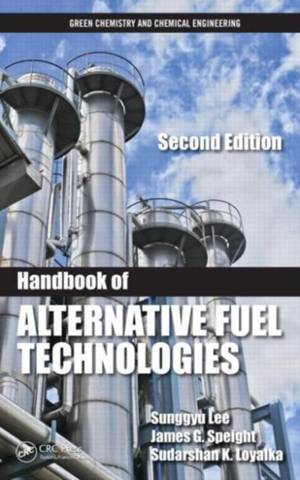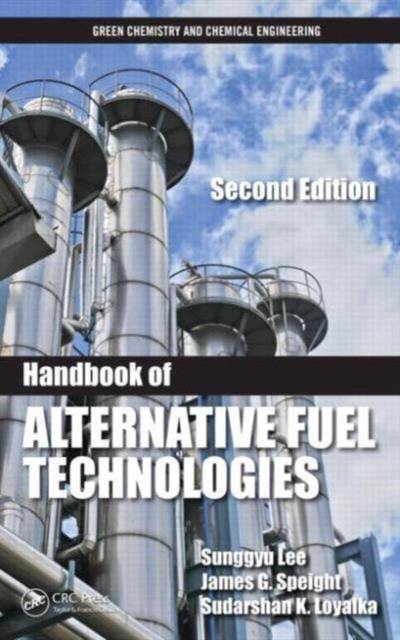
- Afhalen na 1 uur in een winkel met voorraad
- Gratis thuislevering in België
- Ruim aanbod met 7 miljoen producten
- Afhalen na 1 uur in een winkel met voorraad
- Gratis thuislevering in België
- Ruim aanbod met 7 miljoen producten
Handbook of Alternative Fuel Technologies
Omschrijving
While strides are being made in the research and development of environmentally acceptable and more sustainable alternative fuels--including efforts to reduce emissions of air pollutants associated with combustion processes from electric power generation and vehicular transportation--fossil fuel resources are limited and may soon be on the verge of depletion in the near future.
Measuring the correlation between quality of life, energy consumption, and the efficient utilization of energy, the Handbook of Alternative Fuel Technologies, Second Edition thoroughly examines the science and technology of alternative fuels and their processing technologies. It focuses specifically on environmental, technoeconomic, and socioeconomic issues associated with the use of alternative energy sources, such as sustainability, applicable technologies, modes of utilization, and impacts on society.
Written with research and development scientists and engineers in mind, the material in this handbook provides a detailed description and an assessment of available and feasible technologies, environmental health and safety issues, governmental regulations, and issues and agendas for R&D. It also includes alternative energy networks for production, distribution, and consumption.
What's New in This Edition:
- Contains several new chapters of emerging interest and updates various chapters throughout
- Includes coverage of coal gasification and liquefaction, hydrogen technology and safety, shale fuel by hydraulic fracturing, ethanol from lignocellulosics, biodiesel, algae fuels, and energy from waste products
- Covers statistics, current concerns, and future trends
A single-volume complete reference, the Handbook of Alternative Fuel Technologies, Second Edition contains relevant information on chemistry, technology, and novel approaches, as well as scientific foundations for further enhancements and breakthroughs. In addition to its purposes as a handbook for practicing scientists and engineers, it can also be used as a textbook or as a reference book on fuel science and engineering, energy and environment, chemical process design, and energy and environmental policy.
Specificaties
Betrokkenen
- Uitgeverij:
Inhoud
- Aantal bladzijden:
- 702
- Taal:
- Engels
- Reeks:
Eigenschappen
- Productcode (EAN):
- 9781466594562
- Verschijningsdatum:
- 11/07/2014
- Uitvoering:
- Hardcover
- Formaat:
- Genaaid
- Afmetingen:
- 157 mm x 234 mm
- Gewicht:
- 1111 g

Alleen bij Standaard Boekhandel
Beoordelingen
We publiceren alleen reviews die voldoen aan de voorwaarden voor reviews. Bekijk onze voorwaarden voor reviews.











